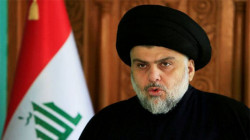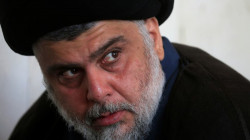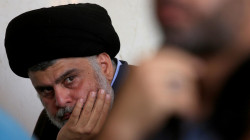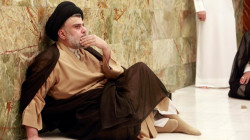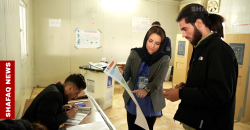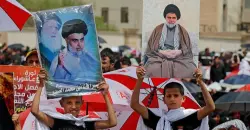Iraq's 'Promiscuous' Women—2 Years Since the Pink and Purple Protests- Report
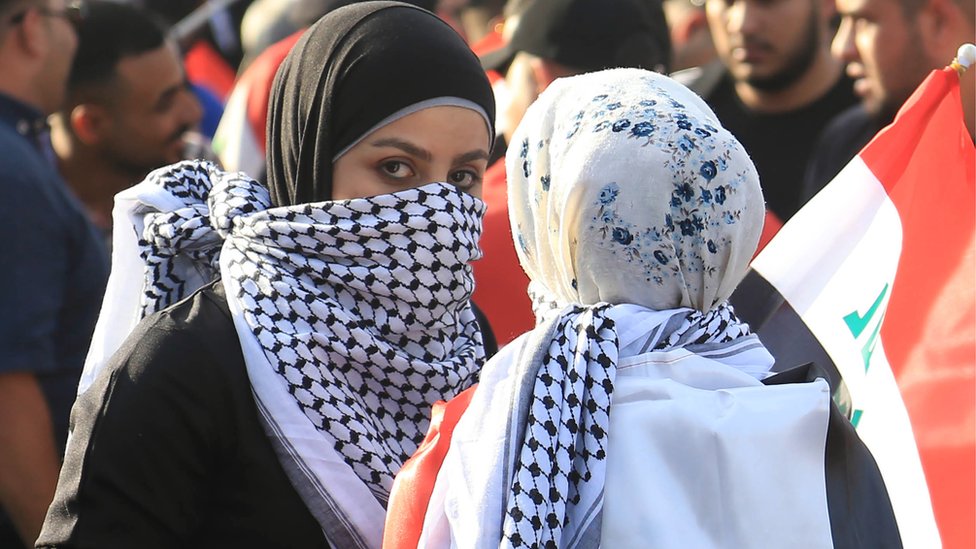
Shafaq News / On Feb. 13, 2020, Iraqi streets were awash with pink and purple. In response to influential Islamist cleric Muqtada al-Sadr's allegations of "promiscuity" by protesters in popular country-wide protests, women's rights activists donned pink and purple items of clothing to demonstrate their right to be heard in Iraq's male-dominated political arena.
This was two years ago, but today the legacy of the Tishreen (October) movement that precipitated the women's march is as important than ever. It revitalized the history of women-led struggles in Iraq, largely overlooked by the West, and inspired a politically active new generation who are determined to change Iraq for the better.
Despite years of various anti-government protests around the country dating back to 2011, the Tishreen movement that erupted in 2020 was larger than any other protest movement Iraq had seen in recent history. This organic movement represented the sentiments of a large segment of Iraqi society opposed to Iraq's systemic corruption, and sectarian and paternalistic political system that has failed to meet political and economic demands. Iraqi women became integral to its success.
During Tishreen, women of all backgrounds took part, regardless of sect or ethnicity, especially in more conservative cities such as Nasiriyah, Najaf and Karbala. Major cities filled with Iraqis demanding an altogether different political and social reality: one that is socially just, non-violent, non-sectarian, equal, resilient and progressive. From the beginning, women were central to planning peaceful protests and sit-ins: setting up protest tents, organizing intellectual discussions, composing, writing, painting, cooking and volunteering as medics and legal counsel.
The pioneering leadership of women in the Tishreen uprisings challenged misogynistic and exclusivist political institutions in Iraq. Their efforts represented the values and views of a large segment of society across the entire Middle East. Female protestors confronted beliefs about the passive role of women, institutionalized for decades by Islamists and non-Islamists alike.
Following months of ongoing protests led by determined young women, on Feb. 8, 2020, Muqtada al-Sadr, arguably one of Iraq's most powerful figures, tweeted, among a wider list of pointers for demonstrators: "The Sharia rules and social codes of this country must be taken into consideration, there should not be a mix between genders inside the protests' tents."
The protestors saw this tweet as degrading and discrediting, particularly women who regarded it as an effort to delegitimize their participation. Despite their sacrifice and the risk to their lives, Sadr was attempting to silence them with allegations of promiscuity. Over the years, Sadr has been at the heart of many anti-government demonstrations, and he has been among the protagonists, advocates and at times, hijackers of those protests. Sadr's comments were tweeted in light of his forces storming protest camps in an effort to get people off the streets. For the protestors, his tweet further revealed him to be a part of the problematic status quo plaguing Iraq since 2003 and obstructing democratic progression.
Demonstrators responded on social media with messages of support and hashtags celebrating women's political action. Calls for a feminist march soon followed, leading to the pink and purple protests that took place days later. The movement's wearing of gender-coded colors visibly brought women's demands to the forefront of wider protests, with signs reading: "صوتج ثورة، مو عورة"—"Your voice is a revolution, not an indecent act."
Today's women's movements challenge the dominant conservative and sectarian political forces in Iraq. For instance, some conservative and sectarian political parties have demanded the publishing of sectarian family laws to replace the unified Personal Status code, which would disproportionately affect the rights of women. They have also obstructed the implementation of a long campaigned for anti-domestic violence law, despite continuous gender-based and domestic violence cases in the country.
The anti-Islamist and anti-sectarian energy behind the pink and purple protests will most likely increase as little changes. Iraqi women represent a progressive and future-oriented force pushing back against regressive and exclusionary forces.
Unlike in other Middle East countries, women's leadership in Iraq's pink and purple protests has moved from the streets to political representation, demonstrated by electoral gains made by women. Determined to bring their priorities for a more inclusive, equal and just Iraq to the foreground of political debate, hundreds of Iraqi women braved intimidation and violence to run for parliament in the early elections last year. Following government concessions in the light of the protests, Iraq's elections were brought forward, along with reform of the voting system to increase transparency and allow for independent candidates to emerge . Despite low turnout, particularly among youth who had led the protests and make up a majority of the population, women candidates fared well. The number of women elected surpassed a 25 percent quota, 97 of 329 (almost 30 percent) seats in the Council of Representatives of Iraq were won by women.
Women have tried to apply the 25 percent quota for parliamentary seats to other branches of the Iraqi government, but these efforts have so far failed. The region's history tells us that despite protestors' progressive vision for Iraq, there remains a danger that as demands for change remain unmet and wider mobilizations occur, opportunistic populist and conservative voices will emerge. Iraq's political elite should instead recognize that they do not represent the majority of Iraq's thinking. As women become better organized and inclusive, their exclusion from political decision-making will only further widen those gaps.
The pink and purple protests sparked by Sadr's tweets reveal the widening gap between Iraq's government and its population. As we write this, Sadr is attempting to consolidate his power in Iraq. Iraqi politicians and political blocs are haggling to form a new government following national elections in 2021 and once again women's priorities and participation are not on their agenda. This is their big error: If Iraq is going to succeed as a state, it will need all its men and its women to confront its many challenges.
Source: Newsweek
